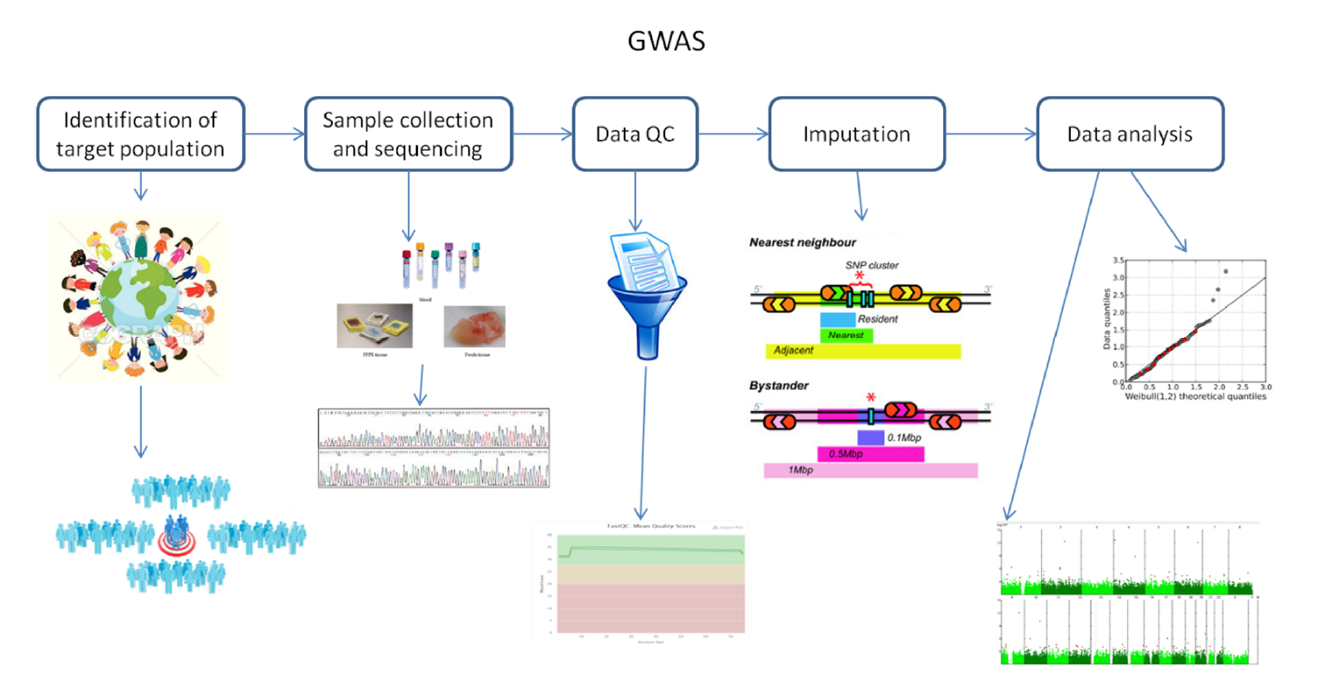Genome-wide association studies (GWAS) are investigations of relatively frequent single nucleotide variations to establish their connection with a particular phenotype or with a particular clinical condition. The approach includes analyzing the genomes of several populations in search of genomic variations that are more prevalent in individuals with a certain disease or trait as compared to those without the disease or trait. Once such genomic variants are identified, they are typically used to search for nearby variants that contribute directly to the disease or trait. Even though GWAS are not disease-specific, they provide important and new knowledge for both research and clinical studies. GWAS databases offer valuable SNP libraries that assist in gaining a better understanding of a target human disease in correlation with other diseases and also facilitate the development of new research strategies that could aid clinicians and these methodologies could easily be transferred to studies of other population subtypes. Researchers use two participant groups for a genome-wide association study: individuals with the condition under investigation and individuals with similar characteristics who are disease-free. Each participant's DNA is collected by the researchers, generally by taking a blood sample or by collecting cells by running a cotton swab along the inside of the mouth. Each person's complete set of DNA, or genome, is then purified from the blood or cells, placed on tiny chips, and scanned on automated laboratory machines. The machines quickly survey each participant's genome for strategically selected markers of genetic variation, which are called single nucleotide polymorphisms, or SNPs. If certain genetic variations are found to be significantly more frequent in people with the disease compared to people without the disease, the variations are said to be "associated" with the disease. Genome-wide association studies to find genetic variants that affect how effectively anti-depressants work, as well as genetic changes that increase the chance of type 2 diabetes, Parkinson's disease, obesity, cardiac problems, Crohn's disease, and prostate cancer.
Dr. Md. Monirul Islam
Senior Scientist
ASRBC, ACI Seed




